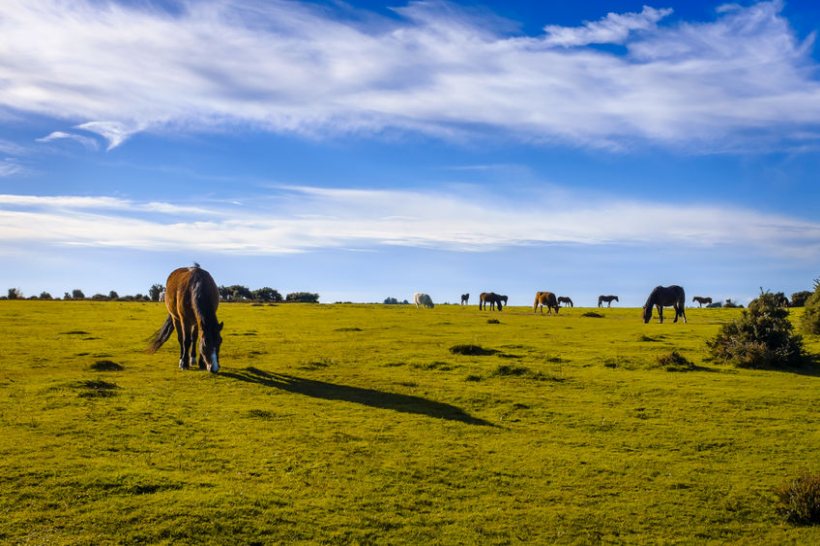
ExxonMobil Fawley will rent out some of its untenanted grazing land in the New Forest to young commoners at a reduced rate.
The New Forest National Park remains one of the few places in England where the ancient tradition of commoning is still widely practised.
However, the rising price of land in the area has made it difficult for commoners to find affordable back-up grazing, and for young commoners to establish themselves.
In a new initiative helping to address the issue, ExxonMobil, which owns one of the UK's largest oil refineries in Fawley, Hampshire, will rent out its grazing land at a lower rate than usual.
The first two commoners to benefit from the scheme, Daniel Drodge and Louise England, will rent land at Hardley Halt.
New stock fencing, a mobile water tank and a holding pen has been installed at the 10-acre site.
Daniel, 27, was born into a commoning family and has a herd of 12 New Forest ponies, which he hopes to extend over time.
He will use the land at Hardley Halt for extra feed during the winter and bringing in mares and foals.
Louise England and her partner Dan were gifted their first pony in 2014 and have slowly increased their herd since.
She said: "We didn’t want to expand our herd too much without having enough back-up ground, so when the opportunity came up to apply for grazing, we jumped at the chance.
"I am excited for the future for new and young commoners if more affordable grazing like this will be able to be made available."
ExxonMobil Fawley first considered how land outside of the Fawley operational footprint could be used following a land review.
The New Forest Commoners Defence Association (NFCDA) was contacted to explore the full extent of the land’s potential.
The initiative advanced with ExxonMobil Fawley, the NFCDA, the New Forest National Park Authority and the New Forest Land Advice Service (NFLAS) working together.
Julie Melin-Stubbs, Manager of NFLAS, said: "The two main areas of work for NFLAS come into play through this initiative: supporting commoning and encouraging sustainable, best practice land management to support nature and the environment.
"Many of these sites will become better for nature once they are grazed."
